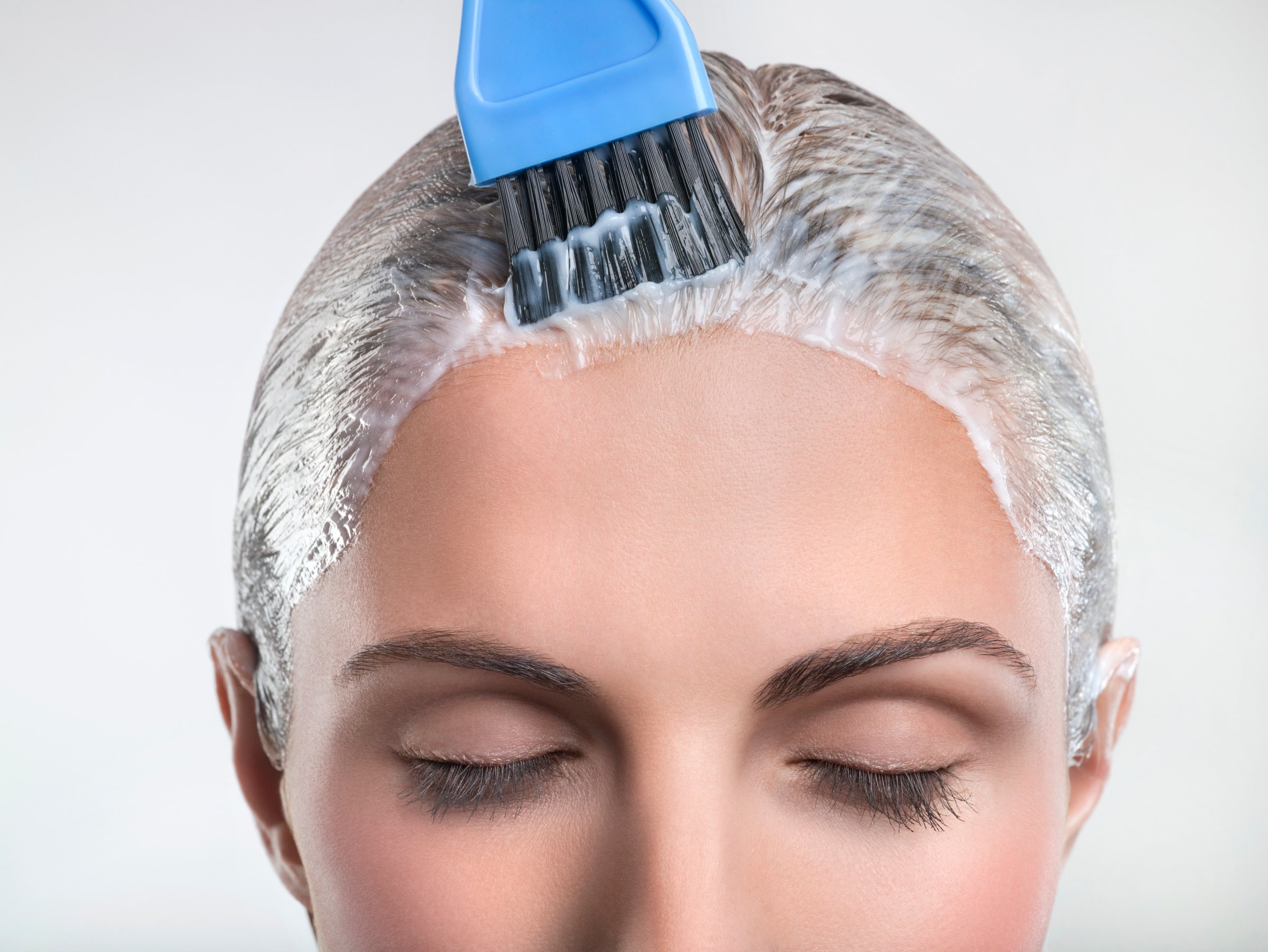
Not a natural blonde or brunette? You might want to be more cautious about coloring your hair. Turns out some people can be extremely allergic to hair dye, as NCIS star Pauley Perrette found out last week when she landed in the hospital with a severe reaction to the stuff.
“Was in ER. Just got home from hospital. Awful. My head swelled up huge like a melon,” Perrette tweeted after posting a photo of her swollen face. Now the star is urging others to read up on hair dye allergies themselves.
“The most important thing to me is that anyone out there that dyes their hair, particularly black, you need to be aware of the symptoms,” she told a local CBS station in Los Angeles.
The actress, who’s a natural blonde, had been dyeing her locks jet black for more than 20 years without incident. Then about six months ago, she developed a rash on her neck and scalp which got worse with every coloring.
Health.com: 16 Hair Myths You Need to Stop Believing
An allergy to hair dye is quite rare, affecting about one in 250,000 people, says Debra Jaliman, MD, a New York City-based dermatologist and author of Skin Rules. Still, it can prove to be just as serious as a nut or shellfish allergy, especially if you’re someone who’s prone to allergic reactions. And while some people may see symptoms the first or second time they use hair dye, it may not happen as fast as you think.
“To be allergic to something, usually your immune system has to come in contact with it and decide it doesn’t like it,” Dr. Jaliman says. “Depending on how sensitive your system is, the allergy may develop more slowly than others.”
That means if you start to see signs of redness, swelling, itching, or burning after several uses of hair dye, don’t write it off. This is your body’s way of telling you an allergy is building up, and continuing to use the dye could actually be fatal. “If you develop a severe allergy, you could get blisters and hives and, though rare, difficulty breathing similar to an anaphylactic reaction,” Dr. Jaliman says. See an allergist or a dermatologist for advice on how to treat your allergy, whether that’s with topical creams or pills like antihistamines.
Health.com:11 Secret Allergy Triggers
If you’re allergic to hair dye, you can blame a chemical called paraphenylenediamine or PPD for your symptoms, Dr. Jaliman says. It’s in most commercial dyes you’d find at both drugstores or hair salons and it helps protect color from fading. Though Perrette called out black dye as being worse than others, you could get a reaction no matter the shade you’re using—or the original color of your hair, Dr. Jaliman says.
If you’re going to dye your hair for the first time, there’s an easy way to tell if you may be allergic. Before coloring your hair, do a skin patch test, typically recommended on most boxed hair color. Basically, you put a bit of dye on your skin and wait 48 hours to see if a reaction develops. If you pass the first time, it’s likely you’re in the clear whether you color at home or the salon, Dr. Jaliman says, and you shouldn’t need to do the test again.
If you do develop an allergy, there are other ways to color your locks safely. Dyes like henna or the line from EcoColors are great natural and non-toxic solutions, she says. Even highlights could be better for you as most use bleach and don’t add color, Dr. Jaliman says. Ask your colorist what formula would be used on your hair.
Health.com: 20 Ways to Stop Allergies
One thing’s for sure: even a mild reaction to hair dye could turn serious. “I wouldn’t be looking into putting chemicals in your hair if you have a history of allergies,” Dr. Jaliman says. “It would probably be best to switch to a chemical-free dye because you don’t want it to escalate into a life-threatening situation.” As for Perrette, she says she’s going to look into natural dyes or wigs.
The Hair Dye Allergy You Need to Know About originally appeared on Health.com.
More Must-Reads from TIME
- Donald Trump Is TIME's 2024 Person of the Year
- Why We Chose Trump as Person of the Year
- Is Intermittent Fasting Good or Bad for You?
- The 100 Must-Read Books of 2024
- The 20 Best Christmas TV Episodes
- Column: If Optimism Feels Ridiculous Now, Try Hope
- The Future of Climate Action Is Trade Policy
- Merle Bombardieri Is Helping People Make the Baby Decision
Contact us at letters@time.com